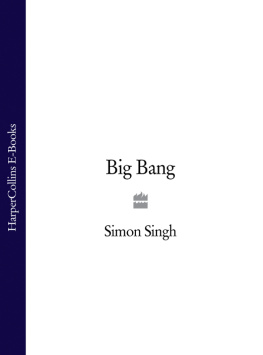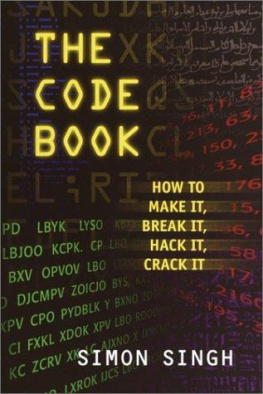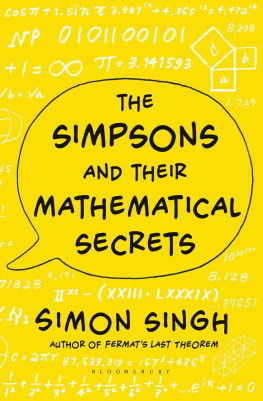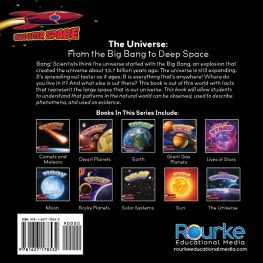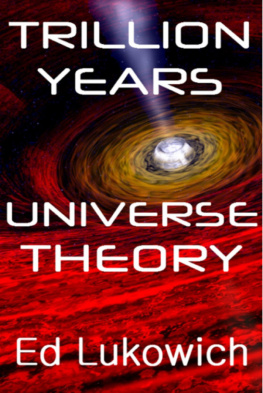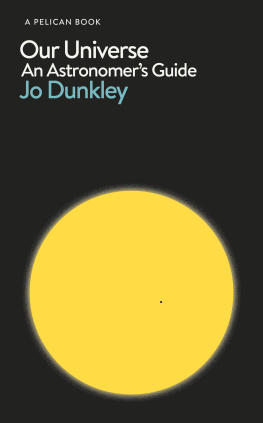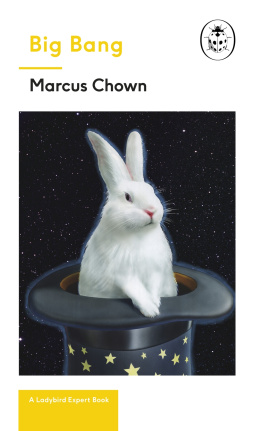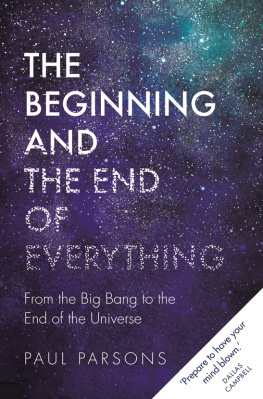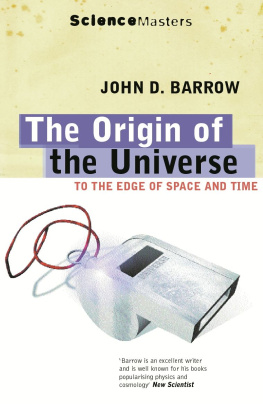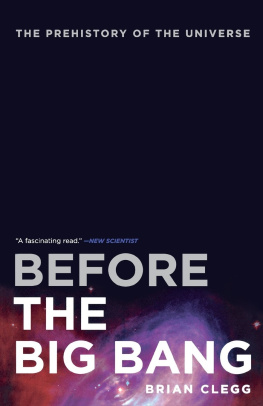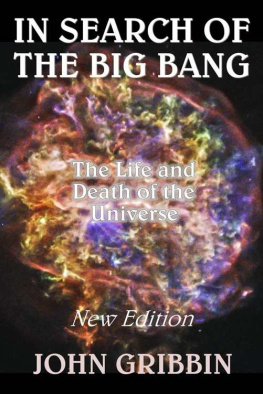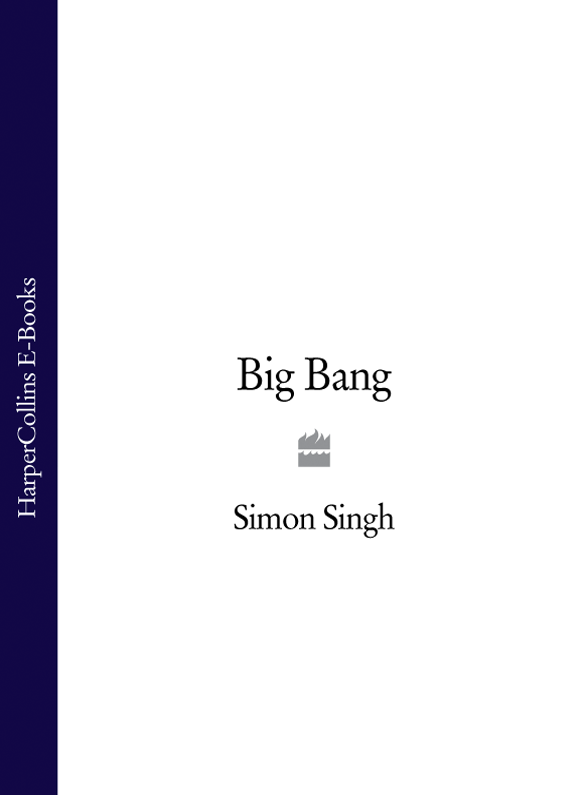Chapter 1
IN THE BEGINNING
Science must begin with myths, and with the criticism of myths.
KARL POPPER
I do not feel obliged to believe that the same God who has endowed us with sense, reason and intellect has intended us to forgo their use.
GALILEO GALILEI
Living on Earth may be expensive, but it includes an annual free trip around the Sun.
ANONYMOUS
Physics is not a religion. If it were, wed have a much easier time raising money.
LEON LEDERMAN

O ur universe is dotted with over 100 billion galaxies, and each one contains roughly 100 billion stars. It is unclear how many planets are orbiting these stars, but it is certain that at least one of them has evolved life. In particular, there is a life form that has had the capacity and audacity to speculate about the origin of this vast universe.
Humans have been staring up into space for thousands of generations, but we are privileged to be part of the first generation who can claim to have a respectable, rational and coherent description for the creation and evolution of the universe. The Big Bang model offers an elegant explanation of the origin of everything we see in the night sky, making it one of the greatest achievements of the human intellect and spirit. It is the consequence of an insatiable curiosity, a fabulous imagination, acute observation and ruthless logic.
Even more wonderful is that the Big Bang model can be understood by everyone. When I first learned about the Big Bang as a teenager, I was astonished by its simplicity and beauty, and by the fact that it was built on principles which, to a very large extent, did not go beyond the physics I was already learning at school. Just as Charles Darwins theory of natural selection is both fundamental and comprehensible to most intelligent people, the Big Bang model can be explained in terms that will make sense to non-specialists, without having to water down the key concepts within the theory.
But before encountering the earliest stirrings of the Big Bang model, it is necessary to lay some groundwork. The Big Bang model of the universe was developed over the last hundred years, and this was only possible because twentieth-century breakthroughs were built upon a foundation of astronomy constructed in previous centuries. In turn, these theories and observations of the sky were set within a scientific framework that had been assiduously crafted over two millennia. Going back even further, the scientific method as a path to objective truth about the material world could start to blossom only when the role of myths and folklore had begun to decline. All in all, the roots of the Big Bang model and the desire for a scientific theory of the universe can be traced right back to the decline of the ancient mythological view of the world.
From Giant Creators to Greek Philosophers
According to a Chinese creation myth that dates to 600 BC, Phan Ku the Giant Creator emerged from an egg and proceeded to create the world by using a chisel to carve valleys and mountains from the landscape. Next, he set the Sun, Moon and stars in the sky; he died as soon as these tasks were finished. The death of the Giant Creator was an essential part of the creation process, because fragments of his own body helped to complete the world. Phan Kus skull formed the dome of sky, his flesh formed the soil, his bones became rocks and his blood created rivers and seas. The last of his breath forged the wind and clouds, while his sweat became rain. His hair fell to Earth, creating plant life, and the fleas that had lodged in his hair provided the basis for the human race. As our birth required the death of our creator, we were to be cursed with sorrow forever after.
In contrast, in the Icelandic epic myth Prose Edda creation started not with an egg, but within the Yawning Gap. This void separated the contrasting realms of Muspell and Niflheim, until one day the fiery, bright heat of Muspell melted the freezing snow and ice of Niflheim, and the moisture fell into the Yawning Gap, sparking life in the form of Imir, the giant. Only then could the creation of the world begin.
The Krachi people of Togo in West Africa speak of another giant, the vast blue god Wulbari, more familiar to us as the sky. There was a time when he lay just above the Earth, but a woman pounding grain with a long timber kept prodding and poking him until he raised himself above the nuisance. However, Wulbari was still within reach of humans, who used his belly as a towel and snatched bits of his blue body to add spice to their soup. Gradually, Wulbari moved higher and higher until the blue sky was out of reach, where it has remained ever since.
For the Yoruba, also of West Africa, Olorun was Owner of the Sky. When he looked down upon the lifeless marsh, he asked another divine being to take a snail shell down to the primeval Earth. The shell contained a pigeon, a hen and a tiny amount of soil. The soil was sprinkled on the marshes of the Earth, whereupon the hen and pigeon began scratching and picking at it, until the marsh became solid ground. To test the world, Olorun sent down the Chameleon, which turned from blue to brown as it moved from sky to land, signalling that the hen and pigeon had completed their task successfully.
Throughout the world, every culture has developed its own myths about the origin of the universe and how it was shaped. These creation myths differ magnificently, each reflecting the environment and society from which it originated. In Iceland, it is the volcanic and meteorological forces that form the backdrop to the birth of Imir, but according to the Yoruba of West Africa it is the familiar hen and pigeon that give rise to solid land. Nevertheless, all these unique creation myths have some features in common. Whether it is the big, blue, bruised Wulbari or the dying giant of China, these myths inevitably invoke at least one supernatural being to play a crucial role in explaining the creation of the universe. Also, every myth represents the absolute truth within its society. The word myth is derived from the Greek word mythos, which can mean story, but also means word, in the sense of the final word. Indeed, anybody who dared to question these explanations would have laid themselves open to accusations of heresy.
Nothing much changed until the sixth century BC, when there was a sudden outbreak of tolerance among the intelligentsia. For the very first time, philosophers were free to abandon accepted mythological explanations of the universe and develop their own theories. For example, Anaximander of Miletus argued that the Sun was a hole in a fire-filled ring that encircled the Earth and revolved around it. Similarly, he believed that the Moon and stars were nothing more than holes in the firmament, revealing otherwise hidden fires. Alternatively, Xenophanes of Colophon believed that the Earth exuded combustible gases that accumulated at night until they reached a critical mass and ignited, thereby creating the Sun. Night fell again when the ball of gas had burned out, leaving behind just the few sparks that we call stars. He explained the Moon in a similar way, with gases developing and burning over a twenty-eight-day cycle.

